Share
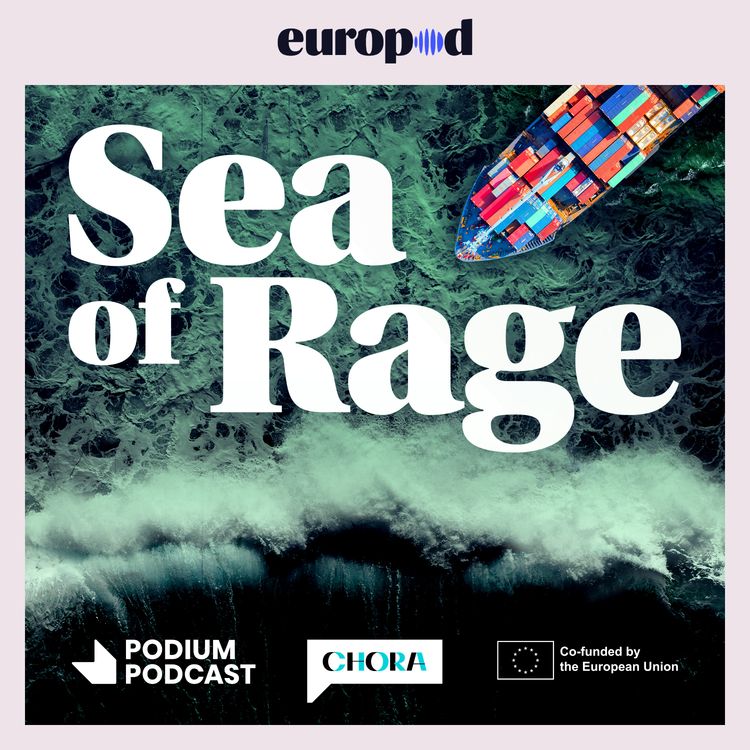
Europod • News
Sea of Rage: Red Threads 5/6
In this episode, we continue our reporting from the area of Gioia Tauro. We meet journalist Michele Albanese who lives under police protection these days. And discover the reach and connections of the Italian Ndrangheta mafia across Europe. From the reporting the differences and red threads connecting Barbate and Gioia Tauro become manifest.
Sea of Rage is a reportage podcast dealing with the borderless narco-trafficking business as seen from the perspective of ordinary people who live in two towns in Southern Europe: Barbate (Andalusìa, Spain) and Gioia Tauro (Calabria, Italy). Over the past few decades, Barbate and Gioia Tauro have become entry points for hashish and cocaine into Europe. But why have these towns become such pivotal places for drug trafficking? And what does it mean to live, day in day out, next door to such dark and murky businesses?
Sea of Rage is an adaptation of the homonymous co-production between Podium Podcast and Chora Media, released in September 2024 under the Spanish and Italian language titles Mar de rabia (Spanish, Podium Podcast) and Mare di rabbia (Italian, Chora Media).
Sea of Rage is part of WePod, a collaborative project financed by the Creative Europe program of the European Commission.
Art direction: Alexander Damiano Ricci
Reporting on the ground and interview collection: Manu Tomillo (Podium Podcast), Javi Caminero (Podium Podcast) and Francesca Berardi (Chora Media)
Original sound design: Elizabeth Bua
Adaptation of scripts in English: Alexander Damiano Ricci
Sound editing: Daniel Gutierrez Ortega
Editorial support (original Italian version): Ilaria Ferraresi e Valeria Luzi
Producer (Italian version): Martina Conte
Original sound theme: Luca Micheli (Chora Media)
Cover artwork: Watermelon collective, based on original artwork by Agencia Player and Giulia Mangano (Chora Media)
Executive producer: Ana Ribera (Podium Podcast)
Project Manager: Henar Leòn (Podium Podcast) and Gloria Beltrami.
Coordination of editorial work and production: Alexander Damiano Ricci.
This co-production was financed by the European Union. However, the points of view and opinions shared are the sole responsibility of the authors and do not reflect necessarily the opinions of the European Union. Nor the European Union, nor the authorities and agencies which might have financed this product can be considered responsible for points of view shared through this journalistic and creative work.
This podcast was co-produced by Europod.
Subscribe to Europod • English for more podcasts and subscribe to our Linkedin and Instagram channels.
More episodes
View all episodes
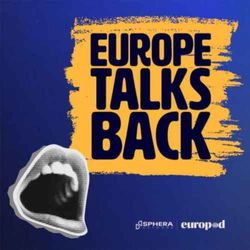
Reupload - Locked Out: Why Europe’s young people can’t afford a home
19:55|Across Europe, Millennials and Gen Z are working, studying and saving, yet home ownership is increasingly out of reach. Though housing is officially recognised as a human right under Article 25 of the Universal Declaration of Human Rights and the European Pillar of Social Rights, skyrocketing house prices and stagnant wages have created what Eurofound calls a “generation-wide affordability divide.” In this episode, I speak with Ina Delić youth engagement officer at Caritas Europe and part of the very generation she’s advocating for, about the lived reality of Europe’s housing crisis, and what it means for young lives and futures.Join us on our journey through the events that shape the European continent and the European Union.Production: By Europod, in co production with Sphera Network.Follow us on:LinkedInInstagram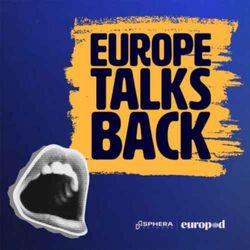
Reupload - Crafts and hobbies bring Europeans back to themselves and each other
15:53|Across Europe, a quiet movement is taking shape. From knitting circles in Helsinki to pottery workshops in Brussels, people are rediscovering the simple, grounding act of making things by hand. What began for many as a way to fill the long days of lockdown has grown into something deeper, a form of self-care, a social bond, and even a small act of resistance against the relentless pace of modern life.In this episode of Europe Talks Back, we explore how creative practices such as ceramics, weaving and painting are reshaping wellbeing and community across the continent. We speak with Brussels-based designer and ceramicist Anna Tou, whose workshops offer people a chance to step away from their screens, slow down, and reconnect not just with clay, but with themselves.Together, they reflect on the tactile joy of creation, the patience that crafting demands, and the way art and tradition continue to bring people together in an increasingly digital world.Join us on our journey through the events that shape the European continent and the European Union.Production: By Europod, in co production with Sphera Network.Follow us on:LinkedInInstagram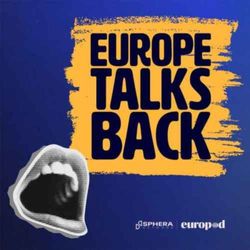
Reupload - Loneliness in Europe: From empty villages to crowded cities
21:54|Loneliness doesn’t stop at city limits or country borders. In this episode of Europe Talks Back,we explore how isolation takes root in both Europe’s bustling cities and its quiet rural towns. With insights from sociologist Jasper de Witte, we unpack why loneliness isn’t just about being alone but about social ties, inequality, and the structures that shape our lives. From young people in fast-paced capitals to older adults in remote villages, millions across Europe are affected. We look at what makes loneliness different in rural and urban contexts, why it matters for public health and democracy, and what solutions from better transport to community spaces might help people feel less cut off and more connected. And today, we’re diving into what loneliness means in rural and urban Europe, why it happens, why it matters, and what can actually make a difference.Join us on our journey through the events that shape the European continent and the European Union.Production: By Europod, in co production with Sphera Network.Follow us on:LinkedInInstagram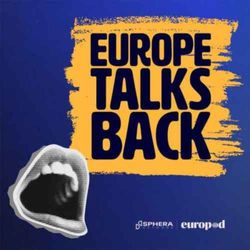
Reupload - Is living in rural Europe a retreat or a reinvention?
18:10|They call it Europe’s backbone: the rural heartlands. Covering more than 80 per cent of the EU’s territory but home to less than 30 per cent of its population, rural areas are vital for food, biodiversity, and climate resilience, yet face population decline, ageing communities, poor infrastructure, and limited digital access. In this episode of Europe Talks Back, Evi Kiorri explores what life is really like far from the cities, speaking with Emanuele Monaco, who left urban life to build a distillery in rural Puglia, Italy. Through his story, we uncover both the challenges and the opportunities of rural life: from revitalising communities and sustainable farming to attracting young families and new ideas. Join us as we examine how policies, investment, and community effort could shape the future of Europe’s countryside.Join us on our journey through the events that shape the European continent and the European Union.Production: By Europod, in co-production with Sphera Network.Follow us on:LinkedInInstagram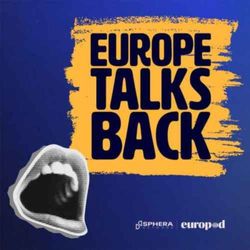
Reupload - The ‘always on’ culture and the battle for the right to disconnect
21:27|Work emails at night. Messages from your boss after dinner. The pressure to be “always on” has become the norm, blurring the line between work and life, and pushing more people toward burnout. In this episode of Europe Talks Back, we look at how digital tools, remote work, and workplace expectations are wearing us down and whether the growing push for a legal right to disconnect can turn things around.We spoke to Professor Claudia Pagliari, an expert in digital health and tech ethics at the University of Edinburgh, to understand how constant connectivity affects our minds, our health, and our relationships and what really needs to change: the law, the culture, or both.Join us on our journey through the events that shape the European continent and the European Union.Production: By Europod, in co-production with Sphera Network.Follow us on:LinkedInInstagram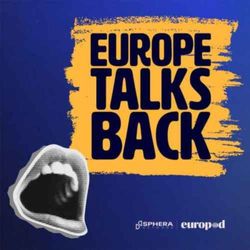
Reupload - One Union, many families: The fight for rainbow parenthood
18:25|What does it really mean to be a rainbow family in the European Union? In this episode of Europe Talks Back, we explore the promise and the shortcomings of the European Certificate of Parenthood, a regulation meant to ensure that parenthood rights are recognised across all 27 EU countries. From Spain to Bulgaria, Italy to Poland, we look at what’s happening when same-sex families cross borders, only to find that their legal status doesn’t always travel with them. To unpack the legal grey zones, the clash between national sovereignty and EU law, and what all this means for the children caught in between, we spoke with Professor Alina Tryfonidou, an expert in EU law and a leading voice on LGBTIQ+ rights. Despite hopeful rulings from EU courts, many rainbow families remain in limbo, a stark reminder that equality on paper doesn't always mean equality in practice.Join us on our journey through the events that shape the European continent and the European Union.Production: By Europod, in co-production with Sphera Network.Follow us on:LinkedInInstagram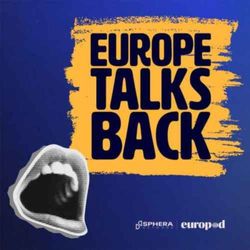
Reupload - Are Europe’s culture wars just a distraction from class struggle?
16:31|In this episode of Europe Talks Back, we explore how Europe's so-called culture wars are used to divert attention from structural economic issues. With insight from political scientist and member of the Social Democrats Justus Seuferle and Politics Professor at the University of Bath, Aurélien Mondon, the episode examines how political and media discourse has shifted away from material concerns like wages, housing, and labour rights, towards debates on identity, migration, and “wokeness.” Our guests argue that this cultural framing distorts the concept of class and often benefits elite interests, while marginalising those most affected by economic inequality. Through this lens, we question who really shapes the public narrative in Europe, and who is excluded from it.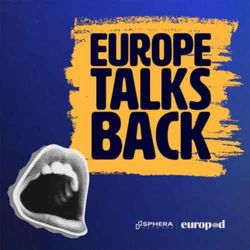
Reupload - How religious power is still shaping abortion laws in some European countries
19:08|Abortion remains illegal in Malta and highly restricted in Poland, despite ongoing pressure from European institutions to uphold reproductive rights. In this episode of Europe Talks Back, we examine the historical and current influence of religious institutions on abortion policy across Europe, and the political forces maintaining these restrictions. We are joined by Neil Datta, Executive Director and founder of the European Parliamentary Forum for Sexual and Reproductive Rights, and Magdalena Chrzczonowicz, Editor-in-Chief of OKO.press and contributor to the cross-border investigation Exporting Abortion, who share insights on how restrictive laws impact women and how cross-border initiatives are working to protect access to safe abortion care.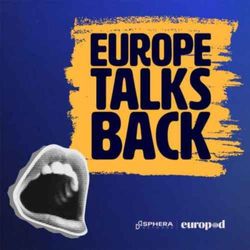
Reupload - Europe's fight against femicide despite data gaps and taboos has begun
21:20|Femicide is not just a word. It's a tragedy, and a manifestation of the deep-rooted inequality women face in every corner of society. It’s not just the tragic end of a life; it’s the culmination of years of violence, abuse, and power imbalances that have been allowed to fester unchecked.Unfortunately, despite legal advancements, femicides remain a persistent issue across Europe. Some countries have introduced comprehensive laws to combat gender-based violence. But others still lack legal recognition of femicide as a distinct crime. In turn, the lack of official data about femicides in several countries further obscures the true scale of the problem. So, why, then, is the legal recognition of femicides a taboo? And, beyond that, are we doing enough as societies to respond effectively to femicides?